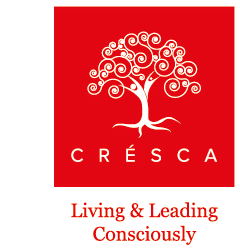It’s been a very intense month and, in a completely unplanned way, taken me to the land of working with a systems psychodynamics approach. Systems psychodynamics is “a term used to refer to the collective psychological behavior” (Neumann, 1999, p. 57) within and between groups and organisations. I first spend two weeks at Tavistock’s well regarded Leicester Conference in the UK. Landed back in Singapore buzzing and barely “landed” in a broader sense and was once again off to using the approach in a work context. So, it has felt like being in a turbo charged, amplified play with the unconscious which is exhausting and yet feels good – akin to a good workout. I often describe the experience as a paradox of messy confusion and yet immense clarity.
There are many approaches and lenses to understanding leadership and very often we learn in the role of a consultant – either through reading books by well known authors, exploring leadership models or from the leadership experience of others. The Leicester Conference provides an opportunity to have a completely first person experience to explore one’s own relationship with authority, power, roles and boundaries. There are no “presenters” and one is given a series of opportunities in different forms of groups, to explore hypotheses and experiment with new behaviours. It can be very intense and the meaning making is largely left to the individual, which, at times, can feel stressful.
A big theme of this past month of working with a systems psychodynamic approach as a learner and then in an application role with a client has been to experience how little we authorise ourselves. A lot of leaders I work with are in their early 40’s and beyond and a common pattern seems to be a view of authority being outside of us… in a boss, in organisational norms, in parents (depending on cultural context), in religious bodies, communities or in an expert. This is, in part, has to do with the socio-psychological factors of our generation, where there was a focus on pleasing authority – be it a parent, teacher, professor, boss etc. There is in implicit power equation and hierarchy in these ways of relating to authority and doesn’t necessarily put the self as an equal author of the relationship with one’s own authority. So, there is often a waiting to be authorised, akin to waiting for an invitation to show up to life.
In my early days of experimenting with this new found authorising of myself, I am becoming suddenly conscious of places that I feel authorised and de-authroised. We all know the experience of feeling de-authorisation at some stage/s in our life: where we are given a role to do something and yet don’t feel fully allowed to express that role in the manner that is ours. This shows up in all aspects of life – leadership, parenting etc. Equally, I am beginning to notice places where I may not be enabling others to authorise themselves and end up de-authorsing them, for e.g., when I get into micro-managing my children or interfere with my husband’s parenting style, I could end up de-authorising them and set in motion the very same patterns that I am trying to get rid of! We can also feel extremely de-authroised by complicated matrix structures in organisations, an over-controlling boss, lack of systems and processes or even a culture that does not allow for creative expression
I am finding, in my own experience and in those of my clients, the power of authorising the self…. it is game changing and places the mandate of authority within us versus outside of us. It empowers the self greatly and decisions become a function of exercising ones own authority versus on vested authority of a parent, boss, spiritual guru, health expert or even social norms dictated from outside the self. This is not say these experts don’t have a place. The question is more our relationship with these sources of authority and power and whether we enable them to authorise ourselves or get into a dependency mode which then weakens our connection with our innate intuition and power.
A self-authorising way of living has a healthy regard for different ways of being and seeing, with an understanding of the nuances and subtleties of one’s own values, likes, dislikes, which are dictated by what one truly feels versus what one ought to feel. The self-authorising being can of course come across as narcissist and being petty about these differences. However, there are leaders who self-authorise in a manner that is transforming for the self and for others; in a way that makes him/her an instrument of change. This level of self-authorising comes from a deeper level of knowing and from transcending differences to a place that truly informs one’s own way of being, which is ever changing and emerging.
As Kegan (1994) pointed out:
“When the socialised mind dominates our meaning making, what we should feel is what we do feel, what we should value is what we do value and what we should want is what we do want”
Authorising the self requires tremendous courage in the context of social expectations and testing boundaries. It is a willingness to own our own authority; requires being connected with this innate understanding of the self and a willingness to act on this understanding versus the sanction or validation of others. It’s displays self-love and self-care and a courage to stand in one’s full glory. And the way we show up to life and leadership changes drastically when we authorise ourselves – it changes from a permisson-seeking “may I?” to a “here I am!”


Many thanks Kavitha! Very refreshing and indeed essential to be true to ourselves… conscious about our feelings and needs, grounded and courageous enough to be comfortable with who we are and create space and time to remember it in all circumstances.
Thank you Kavitha for sharing this – very inspiring 🙂
Truly truly agree to this is what I am trying o do in my life………..moving towards I am.
L I K E
I keep reading this from time to time- only to refresh myself! Thank you Kavitha.
sridhar